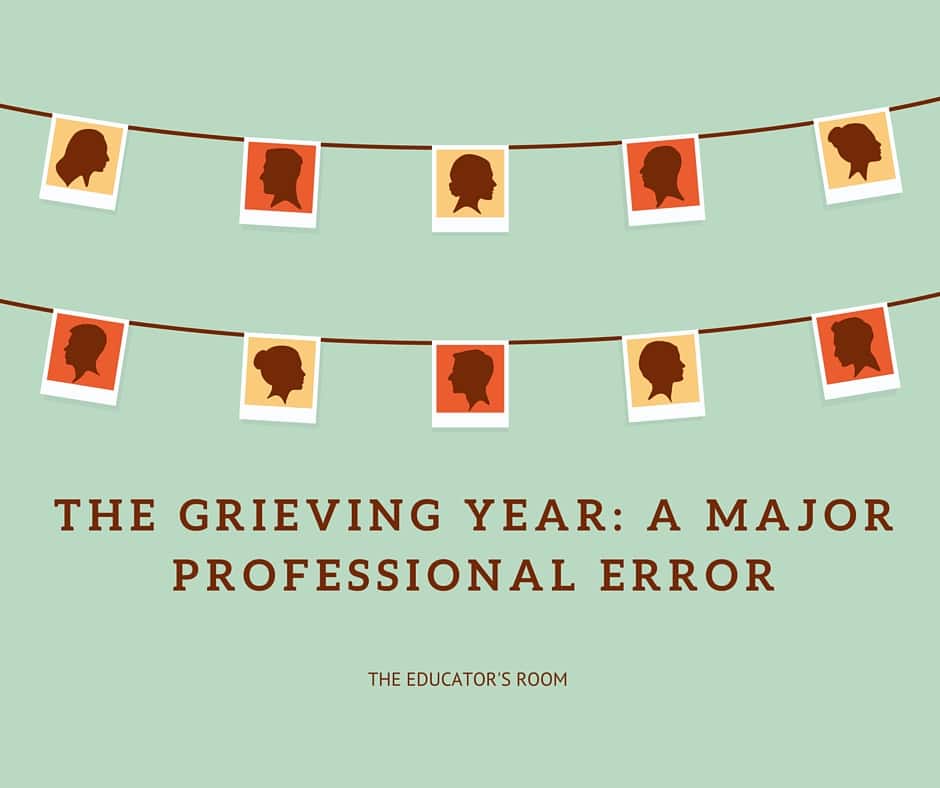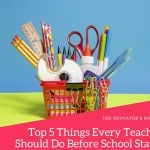During the 2014-2015 school year, I landed a brand new job. This teaching gig seemed to be exquisitely designed for me. I had just received my Master of Fine Arts degree in creative writing, and I was excited by an opening at my county’s most prestigious arts school. The job ad for a creative writing teacher specifically asked for candidates with an MFA and a history of publication, among other qualifications. I knew this was going to be my niche.
What I didn’t consider was my past. I’d spent the previous six years at an international boarding and day school for students with mild to moderate learning differences. My record of success had accelerated my standing in the school; I had risen from English teacher to department chair to communications director. Students loved my class — we read books in trees, played learning games around the school fountain, made chalk art on sidewalks in response to literature, and had a genuinely good time while learning with one another. I was consistently named by the administration and by students as one of the school’s best educators.
But something itched in the back of my brain. I watched as my equally-qualified colleagues moved on to new and exciting educational ventures after about five years with our school, and I was convinced that my professional path should emulate theirs. Never mind that my situation was unique. Never mind that I was following a completely different track than those others. I felt entitled to change, even if it wasn’t yet time. After all, I had increased my education and experience, and in some ways, I felt like I’d moved “beyond” my employer. In conversations with fellow educators, I expressed the sentiment that I had “plateaued” in my career. I had risen as far as I could go there, and while my situation was still somewhat rewarding, it felt like it was time to try something else.
When I made the move to my new employer, I failed to remember my prior new-school experiences. There’s always a time of adjustment. Different schools mean different practices and different expectations, and for whatever reason, I simply forgot all that. I burst onto this new scene with an unhealthy amount of hubris, convinced that, because I was so respected at my last employer, I would be equally revered wherever I went. I was going to be the best thing that ever happened to this place. Wrong.
[fusion_builder_container hundred_percent=”yes” overflow=”visible”][fusion_builder_row][fusion_builder_column type=”1_1″ background_position=”left top” background_color=”” border_size=”” border_color=”” border_style=”solid” spacing=”yes” background_image=”” background_repeat=”no-repeat” padding=”” margin_top=”0px” margin_bottom=”0px” class=”” id=”” animation_type=”” animation_speed=”0.3″ animation_direction=”left” hide_on_mobile=”no” center_content=”no” min_height=”none”][bctt tweet=”I spent the first year of my new gig mourning.” \username=theeducatorsroom”]
I mourned the lack of a faculty retreat (a fun and meaningful tradition at my previous school). I mourned the loss of students with whom I’d built deep relationships. I even mourned mealtime: My last school fed us well (and free!) every day, with lunches akin to most gourmet restaurants. Lunch period had also been my chance to bond with students. Eating with them gave me insights into their lives beyond the classroom and helped me reach them better. There would be none of that here. A sterile, overpopulated cafeteria with bland fare was the best that my new school had to offer. And I could forget eating with students; they were lucky to get their lunch acquired and consumed before the bell rang.
Compounding these problems was the complexity of my new students. They were a different kind of exceptional. While I’d spent the last six years teaching students with dyslexia, ADD, ADHD, Asperger’s Autism, and similar diagnoses, my new students’ intellectual giftedness was overwhelming. In fact, some of them were too smart for their own good. It annoyed me when they were one step ahead of my lesson plan, even though I should have been proud of them. When they came to class with extensive prior knowledge of something I wanted to be new, it deflated my pedagogical hopes. What’s more, I hadn’t developed a single strategy to address situations like these. Time for more mourning.
[bctt tweet=”Head in hands, I had an anxiety overload.” username=”EducatorsRoom”]
Did I mention the bureaucracy? At my prior school, I did largely what I wanted with students when I wanted, within reason. All their forms had been filled out before the school year started: field trip waivers, financial documents, transportation paperwork, and the whole array of necessary red-tape had been completed before they ever came into my classroom. If I wanted us to go somewhere, we went. If I wanted us to watch and discuss a controversial film, there were no problems with that. Almost any book was okay to teach, no “approved list” needed. Teachers, once their mettle was proven, were trusted to do what was in the child’s best interest. The autonomy was beautiful, and the results were like something out of a teacher movie.
At my new school, there were forms to complete for even the most menial reasons. Larger events like field trips or fundraisers were nightmares of countless papers to complete and collect, so much so that I was discouraged from even mentioning them. I knew there would come a tsunami of signature-gathering and legalistic procedures. No thanks. We’ll just stay right here and scrape for resources, I foolishly decided.
Before my first year was even two-thirds over, I was seeking other opportunities elsewhere. This was just going to be too much, I decided. I had little parent support, and my administrator was understandably perplexed. Where was this super-teacher my last school had described to him? Why wasn’t I innovating? Inspiring? Buried in my own professional grief, miserable in a situation of my own making, I reverted to a survival-mode teacher. Worksheets and videos became the norm rather than a backup plan, and I planned to just wait out the year until summer.
But something happened in the meantime. A few key students with whom I’d connected came to me, asking for more assignments like we’d had early on in the year (when I was still inspired-though-egotistical). They wanted to write, really write, and they knew I had something to offer. Their concern and authenticity stirred my creative juices. We began doing work that was meaningful and engaging, and even though I’d alienated some students with my toxic attitude, many more got on board and began to produce really worthwhile pieces. It was late in the game, but maybe there was hope for a final-inning comeback.
I’d like to tell you this story ends with some victorious Stand And Deliver-type moment, but that wouldn’t be accurate. I did build some relationships with both students and parents, and we did manage to put together a decent literary magazine (although it wasn’t produced by year’s end, thanks to a lousy publisher). But the lesson I learned from my grieving year is one I hope to pass on to educators everywhere. You don’t have time to mourn. Cherish those memories you produced at your last great place (if it was great), and move on. Sure, this is easier said than done, and maybe it’s not fair. Loss is hard.
[bctt tweet=”But for the sake of your new students and your new school, your best self is required. ” username=”@theeducatorsroom”]
And that version of you — the super-teacher — can only make an impact if your head and heart are clear.
 [/fusion_builder_column][/fusion_builder_row][/fusion_builder_container]
[/fusion_builder_column][/fusion_builder_row][/fusion_builder_container]







I needed to see this. This sums up how I have been feelining this school year with a change of position and school.